A distinctive narrative trend in recent Korean TV series, which are currently enjoying a surge in global popularity, is the yearning for social change as depicted through the revolution of the underdog against the hierarchical abuse of power. This has resonated deeply with audiences across the world, particularly at a time when the COVID-19 pandemic has exacerbated the already deep social polarization.
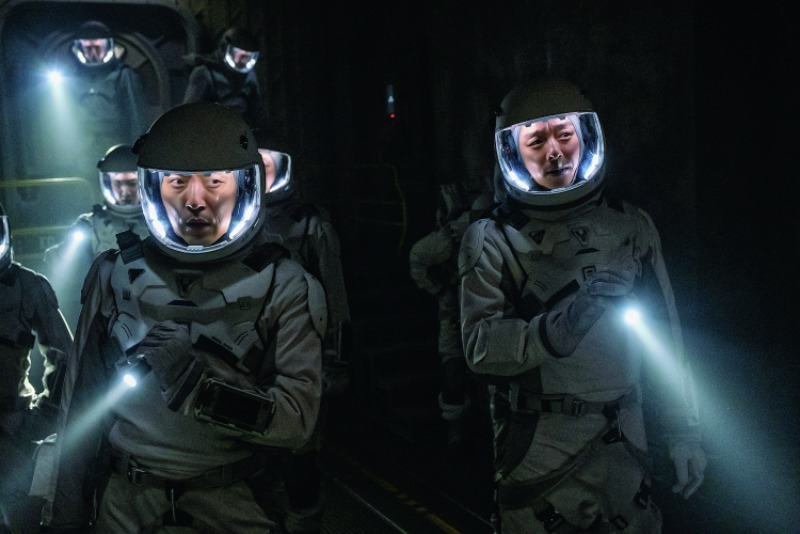
A scene from “The Silent Sea,” a Korean sci-fi series released on Netflix in December 2021. What sets it apart from typical disaster movies and TV series is that it does not adopt the hero narrative. Instead, it depicts a team of space explorers choosing to combat a crisis through mutual respect and cooperation, and in that, it presents a vision of how the world should change for the better.
ⓒ Netflix
The growth of the online streaming service market has brought about a seismic change in the media content ecosystem. Since the beginning of the COVID-19 pandemic, view hours and subscribers of OTT (over-the-top) platforms such as Netflix or Disney+ have increased annually. Until relatively recently, the majority of overseas K-drama audiences were from the Middle East and other parts of Asia, but the rise of global online platforms has seen viewership spread to Europe and the Americas.
Many K-dramas are currently subtitled or dubbed in more than 30 languages. Global OTT platforms represent the “digital Silk Road” through which K-dramas overcome language barriers and expand their reach across the globe. What matters most, however, is the content, not the method. While the pandemic has seen an increase in the wealth gap and an intensification of social class conflict worldwide, many K-dramas offer a gritty portrayal of this grim reality.
Biting Social Commentary
A common thread that ran through globally popular Korean television series from the early and mid-2000s was romance, especially between a rich man and a poor woman. Though often viewed as banal Cinderella clichés, if the genders are overlooked, this theme of romance can be reframed from a new perspective. The story of a rich person and a poor person, who at first are hostile toward each other due to a lack of empathy or understanding, but who ultimately end up falling in love, is essentially one of class conflict. Hence, Korean-style romances are not simplistic love stories.
The Netflix original series “Kingdom” (2019–2021), which fueled extraordinary interest in the traditional Korean men’s hat called gat, is a zombie drama whose backstory sets it apart from its Western counterparts. In most such films or series, including the American TV series “The Walking Dead” (2010–2022), an unknown virus epidemic leads to the emergence of zombies, who spread uncontrollably. But in “Kingdom,” set in the Joseon Dynasty (1392–1910), the zombie outbreak is caused by the strict class-based society, where social inequality and the greed and corruption of the upper classes are pervasive. “Squid Game,” another Netflix original series that won six Emmy Awards in 2022, reframed the deadly survival game genre as a thriller featuring biting social commentary about the cut-throat competition and injustice of contemporary capitalist society. K-dramas are adept at weaving social criticism into their stories, regardless of theme or genre.
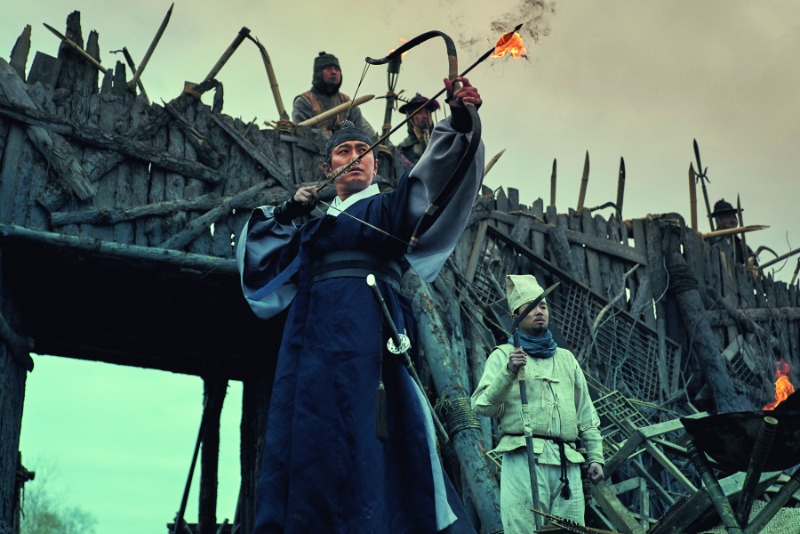
A scene from “Kingdom,” a Korean zombie period drama that became a sensation after its first season was released on Netflix in 2019. Unlike most zombie films or series where an unknown virus epidemic leads to the emergence of zombies, in “Kingdom,” which is set in the Joseon Dynasty, the zombie outbreak is caused by the strict class-based society where social inequality and greed are pervasive.
© Netflix
Turning the Tables
In the wake of the massive global success of “Squid Game,” K-dramas became the target of widespread analysis, both at home and abroad. Most analyses attributed this success to the depiction of harsh reality through the motif of social issues. But similar themes are commonly seen in series produced in other countries, so it is hard to claim that this social discourse is a narrative feature exclusive to K-dramas. So what is the key factor behind their global appeal?
Many of the most popular offerings in recent years, such as “Kingdom,” “Itaewon Class” (2020), “Vincenzo” (2021), “D.P.” (2021) and “Squid Game,” share a common premise. They all depict a society that is built on a rigid hierarchical system where the elites and underdogs occupy opposite ends of the social spectrum. Members of the elite epitomize evil and corruption, and often demonstrate sociopathic or even psychopathic tendencies. The underdog character is marginalized, and placed in pitiful circumstances that evoke sympathy and compassion. These K-dramas express a somewhat dark view of reality, where society is based on a strict hierarchy. The centrality of themes such as inequity and wealth disparity, which are common global issues, has resonated with audiences worldwide.
But at some point, fiction and reality diverge. The protagonists of these series must necessarily be underdogs; they ascend the social ladder and achieve the highest social position, a virtually inconceivable transition in the real world. Such subversion of reality provides a sense of catharsis. This is how many K-dramas capture and portray the world.
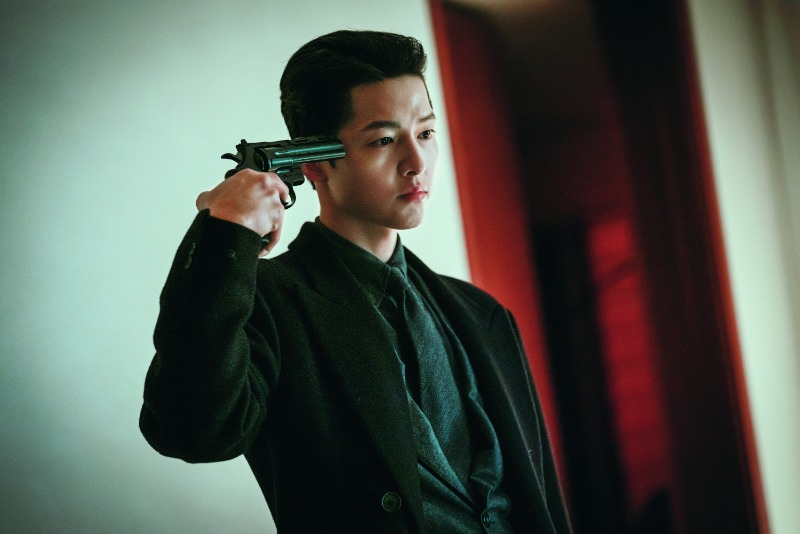
“Vincenzo,” aired on tvN in 2021, turns the conventional crime series formula on its head with subversive imagination. Instead of a righteous prosecutor or detective solving a social issue, a lawyer and Mafia consigliere goes up against the villains in an eye-for-an-eye confrontation.
Courtesy of STUDIO DRAGON
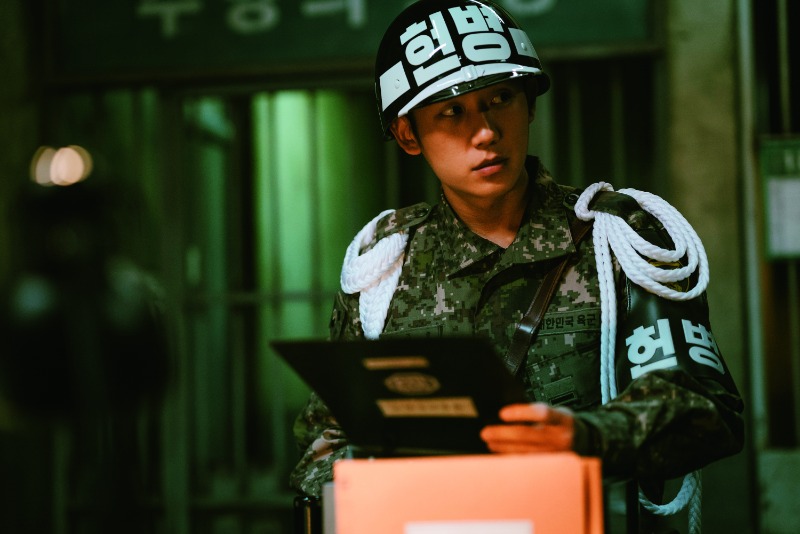
Scene from the webtoon-based military drama “D.P.” (2021), which tells the story of soldiers of a military police unit who hunt down and apprehend deserters. Although it is set in the Korean military, the iniquities it realistically depicts could happen in any society, which is why it resonated powerfully with viewers across the world. The New York Times listed the series as one of the best international shows of 2021, while Forbes described it as one of the best Korean dramas of the year.
ⓒ Netflix
History of Resistance
Based on a critical awareness of both subversive imagination and society’s hierarchical power structure, K-dramas realize the values of democracy in dynamic fashion. Korea is a country with a long history of hardship and resistance, and has experienced many tribulations in the past century alone, from Japanese colonial rule and the Korean War to military dictatorship. Both in the real and fictional worlds, heroism and redemption are demonstrated by those on the periphery. It is not some great hero who brings justice and saves the world; this is accomplished through the solidarity of the seemingly powerless.
Hence, “K” does not simply stand for Korea. In a broader sense, it symbolizes the long history of resistance inherent to all Koreans, the will to show resilience in the face of both adversity and life’s harsh realities, and the vision to make our world a better place. At a time when competition in the OTT industry is increasingly fierce, latecomer Apple TV+ invested 100 billion won (around $70 million) in producing the historical drama series “Pachinko” (2022). Set in Japan-occupied Korea, “Pachinko” can be understood in the same light.
The main character is Sun-ja, a Korean woman who metaphorically represents both Koreans living under colonial rule and, more broadly, persecuted people all over the world. Although the story focuses on a specific character, era, and country, it also acquires universal significance by successfully eliciting feelings of empathy and solidarity with viewers worldwide.
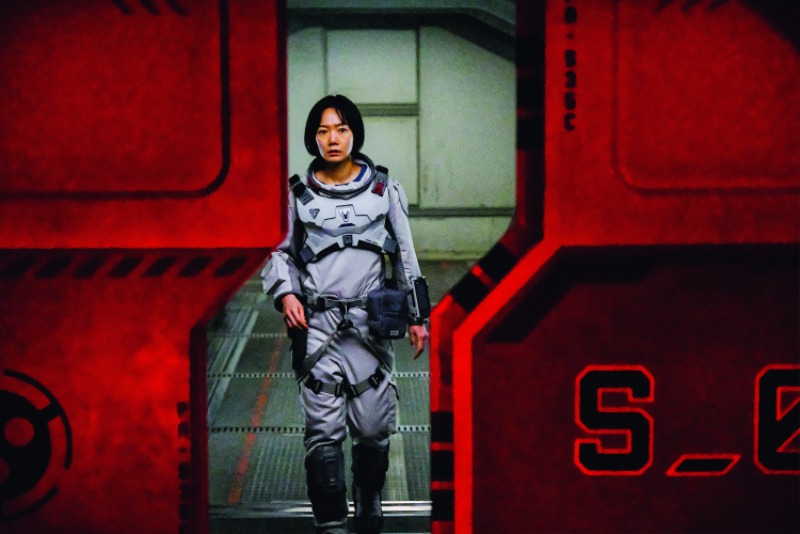
Bae Doona, who plays an eminent astrobiologist in “The Silent Sea.” In contrast to other sci-fi series that rivet audiences with spectacular visuals, “The Silent Sea” maintains a sober tone throughout, unraveling the clues one step at a time.
ⓒ Netflix
The Next Phase
The COVID-19 pandemic has united the world in the fight against a common threat to our survival, and during this time K-dramas that share a meaningful message have provided significant pause for thought. Released in December 2021, the original Netflix series “The Silent Sea” is set in the near future, where Earth is facing a dire shortage of potable water. A team of space explorers is sent on a perilous mission to find water on an abandoned lunar research base. Touted as “the first Korean sci-fi series set on the moon,” it generated notable excitement on its release. The narrative of Earth in a desperate plight is nothing new, having been explored in numerous American TV series and films, most notably “The Avengers” franchise, but one feature that sets this series apart is its approach to solving the crisis.
After various twists and turns, the Korean space crew manages to secure a sample of the lunar water. But instead of going to the Korean research station, the team takes the water to a neutral territory, namely the International Institute of Space Biology, to prevent its monopolization by any one party. Regarding humankind as a single community that shares a common destiny, the crew choose to avert the crisis through mutual respect and cooperation. Within this, the series does not prioritize a quick resolution, but instead values cooperation in pursuing the best approach to combating the problem. In doing so, it poses the question of how the world should look once the underdogs have succeeded in revolutionizing society, and, indeed, how they themselves should act.
In the post-“Squid Game” era, the stories K-dramas tell can no longer remain the same; instead, they need to move into a new phase. “The Silent Sea” shows how our capacity for imagination and enterprise can drive change for the better. This is the power of the unique story world in K-dramas; they go beyond merely depicting the world as it is and instead explore one in which change is possible. K-dramas are on the cusp of a new beginning.
Kim Min-jung Professor, Department of Creative Writing, Chung-Ang University